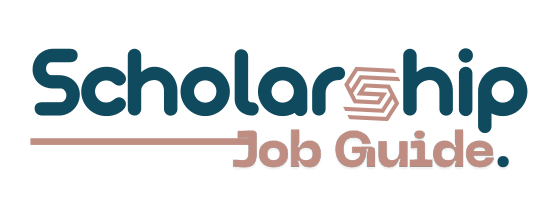Securing a fully funded scholarship can be a game-changer for international students looking to study abroad.
These scholarships not only cover tuition fees but often provide allowances for living expenses, travel, and other costs associated with studying overseas.
However, for many people, the hard part is finding the right scholarship opportunities and successfully navigating the application process to achieve the desire result.
Table of Contents
ToggleWhat Is a Fully Funded Scholarship?
Fully funded scholarships are awards that cover all study expenses, including tuition, accommodation, travel, books, and sometimes a stipend for personal expenses. These scholarships are awarded based on academic merit, leadership potential, research capability, or financial need
These scholarships are offered by universities, governments, private organizations, and foundations, and they allow talented students from to access quality education in the best universities around the world.
Types of Fully Funded Scholarships
Before you begin applying, it’s crucial to know the different types of fully funded scholarships for international students. Here are the main categories:
- Government Scholarships: These scholarships are offered by national governments to promote international exchange. Some of the most popular government scholarships include:
-
- Study in Hungary With Fully Funded Stipendium Hungaricum Scholarship 2025-26
- Erasmus Mundus (Europe)
- Erasmus Mundus Joint Master’s Scholarships 2025: Step-by-Step Application Process
- Australia Awards (Australia)
- Study Abroad With FG Bilateral Education Agreement Scholarship 2025
- New Zealand Scholarships (New Zealand)
- Chinese Government Scholarship at Shanghai University 2025 – Apply
- MEXT Scholarships (Japan)
- Romanian Government Scholarships 2025/2026: Fully Funded Study in Romania for International Students
- University Scholarships: Many universities offer fully funded scholarships to attract international talent. These scholarships are often awarded based on merit or need. Some examples include:
- Oxford University Weidenfeld Hoffmann Scholarship 2025 (Fully Funded)
- MSc Artificial Intelligence at University of Sheffield
- University of Ottawa Scholarships for African Students 2025
- Imperial College London MSc Aeronautics Scholarship 2025 | Fully Funded for International Students
- University of Otago Scholarships 2025 – Fully Funded Master’s & PhD in New Zealand
- Private and Nonprofit Organization Scholarships
Some private organizations, foundations, and corporations offer fully funded scholarships to promote specific fields of study. Popular ones include:- British Academy International Fellowships 2025: Fully Funded Research in the UK for Global Scholars
- Kenn Borek Air Scholarship 2025 Open – $5,000 Aviation Grants for Western & Northern Canada Students
- $10,000 MPOWER MBA Scholarship for International Students 2025
- Nokia Future Tech Summer Internship Canada 2025: A Unique Opportunity for High School Students
- Program-Specific Scholarships: Many academic programs offer fully funded scholarships to attract the best candidates. For instance, a Master’s degree in Artificial Intelligence, Data Science, or Business Management may come with specific funding opportunities.
- MSc Artificial Intelligence at University of Sheffield | £10,000 Scholarships Available for 2025
- Imperial College London MSc Aeronautics Scholarship 2025 | Fully Funded for International Students
- Goya Foods Culinary Arts Scholarship Program 2025
- Erasmus University MBA Scholarship 2025 For International Students: Apply Now
Step 1: Research Available Scholarships
Where to Find Fully Funded Scholarships?
The first step to winning a fully funded scholarship is to conduct in-depth research to find scholarships that align with your goals and field of study. Use the following strategies for effective research:
- University Websites: Many universities have dedicated scholarship pages that list all available scholarships for international students. Examples include the University of Oxford, Harvard University, or University of Melbourne.
- Government Scholarship Portals: Governments often maintain online portals for scholarship applications, such as the DAAD Scholarship Portal for Germany, Erasmus Mundus Scholarship Portal for Europe, and Australia Awards for Australia.
- Search Engines & Scholarship Databases: Websites like Scholarships.com, Chevening Scholarship, and DAAD allow you to search and filter scholarships based on your region, field of study, and eligibility.
- Online Scholarship Forums & Groups: Join scholarship-focused forums, Facebook groups, or LinkedIn groups where applicants share their experiences and scholarship updates.
Tip: Start researching at least 6-12 months before your intended study period to meet deadlines.
Step 2: Check Eligibility Requirements
Each scholarship has its own set of eligibility criteria that applicants must meet. It’s important to thoroughly read through the eligibility requirements to ensure you qualify before applying. Common eligibility factors include:
- Academic qualifications: Most scholarships require at least a bachelor’s degree or equivalent.
- Age limit: Some scholarships may have age restrictions for applicants.
- Language proficiency: Many scholarships require proof of proficiency in English (e.g., IELTS, TOEFL) or other languages.
- Work experience: Certain scholarships, especially for postgraduate study, may require applicants to have professional work experience in their field.
- Geographic restrictions: Some scholarships may be restricted to students from specific countries or regions.
Tip: Always check the specific eligibility criteria before applying to avoid disqualification. For instance, the Erasmus Mundus program requires applicants to have a completed undergraduate degree and meet language proficiency requirements, while the Chevening Scholarship prioritizes leadership potential and academic excellence.
Step 3: Prepare Your Documents
Once you’ve identified the scholarships you want to apply for, it’s time to start gathering the required documents. Commonly requested documents for fully funded scholarships include:
- Academic Transcripts: Certified copies of your academic records.
- Letters of Recommendation: Typically, two or three academic or professional references.
- Statement of Purpose (SOP): A well-crafted essay explaining why you want to study abroad, your career goals, and why you’re a good fit for the scholarship. Check out Fully Funded Scholarship Application: 5 Critical Elements Selection Committees Look For
- CV or Resume: A current and comprehensive CV outlining your educational background, work experience, extracurricular activities, and skills.
- Language Proficiency Test Results: IELTS, TOEFL, or other language certifications.
- Proof of Financial Need (if applicable): Some scholarships require proof of financial hardship.
- Research Proposal or Portfolio (for research-based scholarships): If you’re applying for a research-focused scholarship, you may need to submit a research proposal or a portfolio of work.
Step 4: Craft a Winning Scholarship Application
Now that you have all your documents ready, it’s time to focus on the application itself. Here are some tips to help you craft an application that stands out:
- Tailor Your Application to the Scholarship: Customize your Statement of Purpose (SOP) and other documents to align with the specific scholarship you’re applying for. Highlight your achievements, ambitions, and how the scholarship will help you achieve your goals.
- Showcase Your Leadership Skills: Many scholarships, like the Chevening Scholarship, prioritize leadership potential. If applicable, mention any leadership roles you’ve taken on in school, work, or extracurricular activities.
- Demonstrate Your Passion for Your Field: Scholarships look for passionate and driven candidates. Whether you’re applying for a Master’s in Artificial Intelligence or Business Management, show how your past experiences have shaped your interest in the field and how the scholarship will help you make a significant impact in the future.
- Be Clear and Concise: Admissions committees review thousands of applications, so make sure your essays are clear, well-organized, and free of jargon. Stick to the word limits and ensure your message is compelling.
- Proofread and Edit: A poorly written application can significantly reduce your chances. Proofread your SOP, CV, and other documents for spelling, grammar, and punctuation mistakes. You can also ask a mentor or peer to review your application before submission.
Step 5: Submit Your Application Before the Deadline
Make sure you submit your application before the deadline. Scholarship deadlines can vary, but generally, fully funded scholarships require applications several months before the academic year begins. Before submitting, double-check the following:
- All required documents are attached.
- Your personal information is correct.
- Your essays and personal statements are polished.
Tip: Save a copy of your submitted application for reference.
Step 6: Prepare for Interviews (If Applicable)
Many fully funded scholarships require an interview. Common questions include:
- “Tell us about yourself.” – Summarize your academic and leadership background
- “Why do you deserve this scholarship?” – Highlight your impact and career goals
- “What are your future aspirations?” – Show how the scholarship fits into your plans
- “How will you contribute to our community?” – Demonstrate leadership and engagement
Step 7: Stay Updated and Follow Up
After submitting your application, keep an eye on your email for any updates. Many scholarships notify applicants of their status via email, but it’s also a good idea to periodically check the scholarship portal or contact the scholarship office for updates. If you haven’t received any news after a reasonable period, don’t hesitate to follow up.
Step 8: Apply for Multiple Scholarships
Don’t rely on a single application—apply to at least 5-10 scholarships to increase your chances.
- Use a Spreadsheet – Track deadlines, requirements, and progress
- Customize Each Application – Avoid generic applications; tailor your essays
- Stay Motivated – Rejection is normal; keep improving and applying
Tip: Many successful applicants applied multiple times before securing a scholarship.
Step 9: Accepting the Scholarship and Preparing for Your Journey
Once you’re awarded the scholarship, congratulations! But your work isn’t done yet. Here are the next steps:
- Accept the Scholarship Offer: Carefully read the terms and conditions of your scholarship and accept the offer.
- Apply for a Student Visa: Apply for the necessary student visa or residence permit for the country where you’ll be studying.
- Prepare for Your Move: Arrange your accommodation, health insurance, and travel plans.
- Stay Organized: Keep track of all deadlines, documents, and any additional tasks required to finalize your scholarship.
FAQs: Fully Funded Scholarships for International Students
1. What is a fully funded scholarship?
A fully funded scholarship covers all the costs associated with studying abroad, including tuition fees, living expenses, health insurance, travel expenses, and more. It’s designed to eliminate financial barriers for international students pursuing higher education in another country.
2. What types of fully funded scholarships are available?
There are several types of fully funded scholarships:
- Government Scholarships (e.g., Fulbright, Chevening, DAAD)
- University Scholarships (e.g., Rhodes Scholarship, Yale Scholarships)
- Private & Nonprofit Organization Scholarships (e.g., Gates Cambridge, MasterCard Foundation)
- Program-Specific Scholarships (e.g., for specific fields of study like AI, Data Science)
Each has its own set of eligibility criteria, application procedures, and deadlines.
3. Who is eligible for fully funded scholarships?
Eligibility requirements vary depending on the scholarship. However, most require:
- A minimum academic qualification (usually a bachelor’s degree or equivalent)
- Proof of language proficiency (like IELTS or TOEFL)
- Specific age restrictions or geographic limitations (e.g., scholarships for students from certain countries)
- Academic excellence and leadership potential, in some cases.
Check the specific scholarship guidelines for the exact eligibility criteria.
4. How do I find fully funded scholarships?
To find fully funded scholarships:
- Visit university websites for scholarship information
- Check government scholarship portals (like Chevening or DAAD)
- Use scholarship search engines such as Scholarships.com, ScholarshipsDB, or The Scholarship Hub
- Join forums and social media groups dedicated to scholarships
It’s important to research early and regularly check for new opportunities.
5. What documents are required for applying to a fully funded scholarship?
Common documents required for fully funded scholarship applications include:
- Academic transcripts and certificates
- Letters of recommendation
- Statement of Purpose (SOP)
- Resume/CV
- Proof of language proficiency (IELTS, TOEFL)
- Financial need documents (if applicable)
- Research proposal or portfolio (for research-based scholarships)
Make sure all documents are official and meet the scholarship’s guidelines.
6. How do I write a winning Statement of Purpose (SOP)?
To write a compelling Statement of Purpose (SOP):
- Clearly explain your motivation for studying abroad
- Show your passion for your chosen field of study
- Demonstrate how the scholarship will help you achieve your long-term goals
- Align your goals with the scholarship’s objectives and values
- Be authentic and show how your experiences make you a strong candidate
Tailor your SOP to the specific scholarship to make a memorable impression.
7. When should I start applying for fully funded scholarships?
It’s advisable to start researching and preparing for scholarship applications at least 6–12 months before the application deadline. Some scholarships may have early deadlines (e.g., September to November), so planning ahead ensures you have enough time to gather documents and write strong application materials.
8. What should I do after submitting my scholarship application?
After submitting your application:
- Check for any confirmation emails or application status updates.
- Stay in touch with the scholarship organization to track progress.
- If an interview is required, prepare thoroughly by practicing common interview questions and researching the organization offering the scholarship.
- Follow up politely if you haven’t heard back after a reasonable time.
9. Can I apply for more than one fully funded scholarship?
Yes, you can apply for multiple fully funded scholarships for international students, but make sure that the scholarship terms don’t conflict (for example, some scholarships may not allow you to accept more than one award). Each scholarship might have different eligibility criteria, and you can maximize your chances by applying to a variety of opportunities.
10. What happens if I am awarded a fully funded scholarship?
If you are awarded a fully funded scholarship:
- You will typically receive an official award letter with all the details of the funding and conditions.
- Review the terms carefully, including any obligations such as maintaining a certain academic standing.
- Complete any necessary paperwork, such as visa applications or travel arrangements.
- Accept the scholarship offer and prepare for your studies abroad.
11. Can I defer a fully funded scholarship if I am unable to attend the program immediately?
Most scholarships do not allow deferrals, meaning that if you’re unable to attend, you may have to reapply for the next intake. However, some scholarships may allow deferrals in exceptional cases (e.g., health issues or personal emergencies). Check the scholarship’s terms and conditions to confirm.
12. How competitive are fully funded scholarships?
Fully funded scholarships for international students are highly competitive because they offer significant financial support. Applicants must demonstrate academic excellence, leadership potential, and a clear vision for their future career. Strong applications, along with tailored documents, can significantly improve your chances, but be prepared for the competitive nature of the process.
13. Can I work while studying with a fully funded scholarship?
Most fully funded scholarships provide sufficient funding to cover tuition and living expenses, so working while studying may not be necessary. However, certain scholarships or countries may have restrictions on part-time work for international students. Check with the scholarship provider and the relevant immigration authorities for specific rules on student employment during your studies.
14. What if I’m not selected for a fully funded scholarship?
If you’re not selected for a fully funded scholarship, don’t be discouraged. You can:
- Look for other funding opportunities (partial scholarships, assistantships, grants)
- Gain more relevant experience for future applications (e.g., internships, volunteering)
- Reapply in subsequent years, especially if you have improved your qualifications
Persistence is key in the scholarship application process.
15. Can I apply for a fully funded scholarship if I already have a degree?
Yes, many fully funded scholarships are available for postgraduate studies (Master’s, PhD, etc.), so if you already have a degree, you are still eligible. Just ensure you meet the scholarship’s specific eligibility requirements for applicants with prior qualifications.
Conclusion: Take Action and Secure Your Scholarship
Securing a fully funded scholarship as an international student is a rewarding and transformative experience. By following the steps outlined in this guide—researching scholarships, preparing your documents, and crafting a compelling application—you’ll greatly increase your chances of success.
Start early, stay organized, and remember that perseverance is key. Your dream of studying abroad with a fully funded scholarship is within reach.






